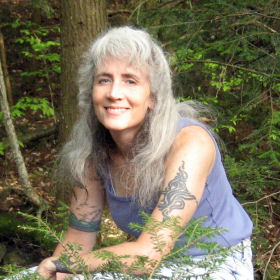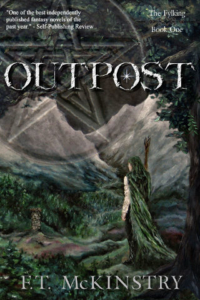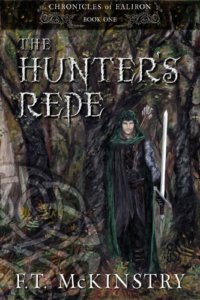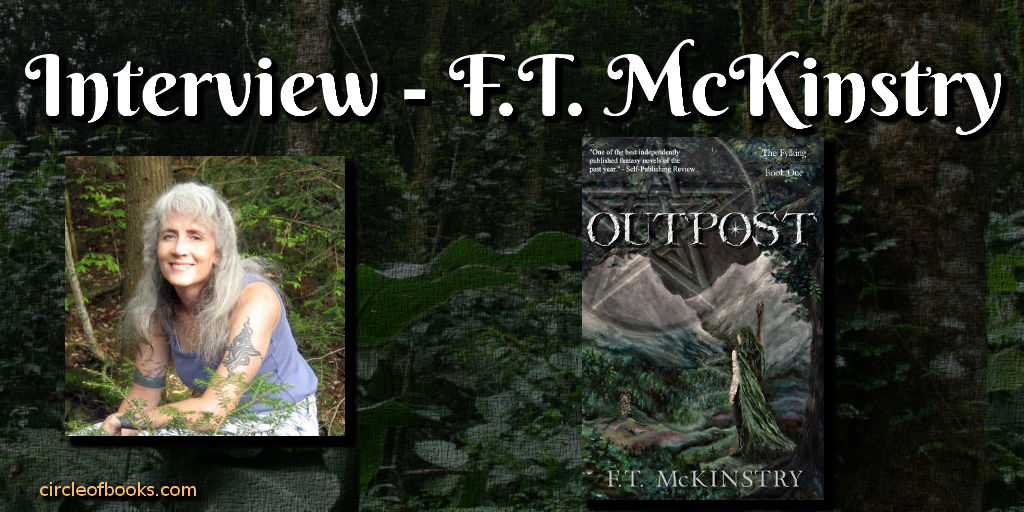Interview – F.T. McKinstry
 |
 |
 |
– When did you start writing novels and what moved you to start writing?
I had a knack for writing at a young age, inspired by a love for fantasy, mythology and the occult. I started tackling novels in the 90s. It was many years before I published anything of note. During that time I put down hundreds of thousands of words while waiting for agents, publishers, and magazine editors. I learned how to write—but above that, I learned patience.
– In what genres do you write? Do you plan writing in other genres?
Traditional fantasy, epic fantasy, and swords and sorcery with fairy-tale and mythical overtones. I also have a thing for military scifi. A while back I wrote and published a short story alone those lines, and really enjoyed that. It was a one-off thing, but scifi elements have a way of creeping into my fantasy in interesting ways.
– Who are the authors who inspired you?
That’s a tough question because it evolves. I’m inspired by books I love and am always discovering new ones. I grew up in the 70s, and was inspired then by Ursula LeGuin, Patricia McKillip, Frank Herbert, Stephen R. Donaldson and J.R.R Tolkien, among others.
– Tell us about your novels. Why should everyone buy them?
I write the stuff I like to read: adult fantasy, detailed, character driven, and a bit on the dark side. My stories have a fairy-tale air, in a grim way, and get into the psyches of characters who tend to be tormented, complex, troublesome and old-school heroic. My stories have a big dynamic range between the depths and highs of human experience. Throw in wizards, warriors, and an intrepid exploration of the Otherworld and there you have it, well-written fantasy that appeals to lovers of the genre.
– What is your all-time favorite Epic Fantasy novel? What makes it so special?
These days it’s almost trite to hear authors answer this with Lord of the Rings. But I believe them, because, well, it’s Tolkien. I’ll say it too, but not lightly: Lord of the Rings changed my life. Before the age of 18 I’d read it at least eight times, and several more times since. It’s archetypal. Aside from being brilliantly written, it led me to other books and studies that have influenced my work to this day.
– Tell us a bit about your writing process.
I admire writers who can write outlines and stick to schedules. I don’t have that circuitry. I operate on feel, whatever else I’m processing at the time, the weather, whatever. I brood a lot. I can go days, weeks, months gathering images and impressions until I’m ready to write. The details unfold as I go. I also need music. It’s like an engine; I have a hundred playlists I use to set scenes, moods, and to anchor me. I often wonder how I ever get anything written, but I do. It’s like sorcery. Put on some mojo, go between the worlds and things happen.
– Tell us about your hobbies and passions other than writing.
I love to read and study things, and have eclectic tastes in books and music. I’m an artist, and have been drawing and painting all my life. I like illustrating stories. I’m also a nature lover, an avid gardener, an aquarium geek and a cat worshiper; and am really into medieval warfare, Norse mythology, ravens and wolves.
– We have many followers who would like to start writing a book or are already writing their first novel, any advice for these brave people?
Yes, run away while there’s still time. (Just kidding. Sort of.) Experience is worth more than advice, but here goes. First off, separate writing from selling. Put all that book sales, marketing and promotion noise you see on the internet in a file somewhere. Learn the craft. The creative process is awesome, but it can put you under a spell that blinds you to reality. It will take a great deal of work to transform your drafts into something well-written. It doesn’t come out that way. Read a whole lot. Learn the nuts and bolts and write until they become second nature. Develop your style and find your voice. Save your pennies for a good editor. Do the time—and don’t fall for the glorious seduction of self-publishing. It’s an exciting revolution, yes. But if you’re serious about writing, give your work the love and respect it deserves and don’t just jam it out there because you can. It’s all right to suck for a while. That’s real.
– How often do you write, daily, every other day or?
Whenever it happens. It goes in waves; I’m obsessed until it flows clean and then I go to ground until builds up again.
– Do you keep a notebook with ideas for your novels? If so, do you carry the notebook with you so you won’t forget any ideas?
I love writing in notebooks. It’s a multidimensional operation. It gets me away from the computer (i.e., the internet) and puts me in a different zone, which is very useful. I like the feel of a pen on a page. I’ve put down the foundations of entire novels in notebooks. And yes, I haul them around with me everywhere.
– Some people presume that when one writes Fantasy you can make up all sorts of things but it isn’t this simple is it? Tell us about the kind of research you have done to write your books.
Among other things, I think good fantasy brings you into another world by giving you just the right references to this one. There’s an art to this. Small, subtle details can make all the difference; too many references can be boring; and no references can lose the reader. The trick is to make up things in a familiar context. I have a large repository of interests that bridge the worlds: Plant and animal lore, mythology, folk and fairy tales, Wicca, psychology, shamanism and a background in high tech give me plenty of material to draw from. Familiar things that are esoteric make good inroads to writing fantasy. And the internet, well, that’s the ultimate source for interesting details that can bring things alive.
– What are you reading at the moment?
Soldiers Live, the last book in Glen Cook’s long-running Black Company series; The Best of Robert E. Howard: Crimson Shadows; and Sword Song, Book 4 in The Saxon Stories by Bernard Cornwell.
– A final message for our circleofbooks.com readers.
Half the joy of writing is sharing it with others. Thank you for being there. 🙂
Thank you F.T. McKinstry. We at circleofbooks.com wish you much success!
Visit the author’s page here on circleofbooks.com
